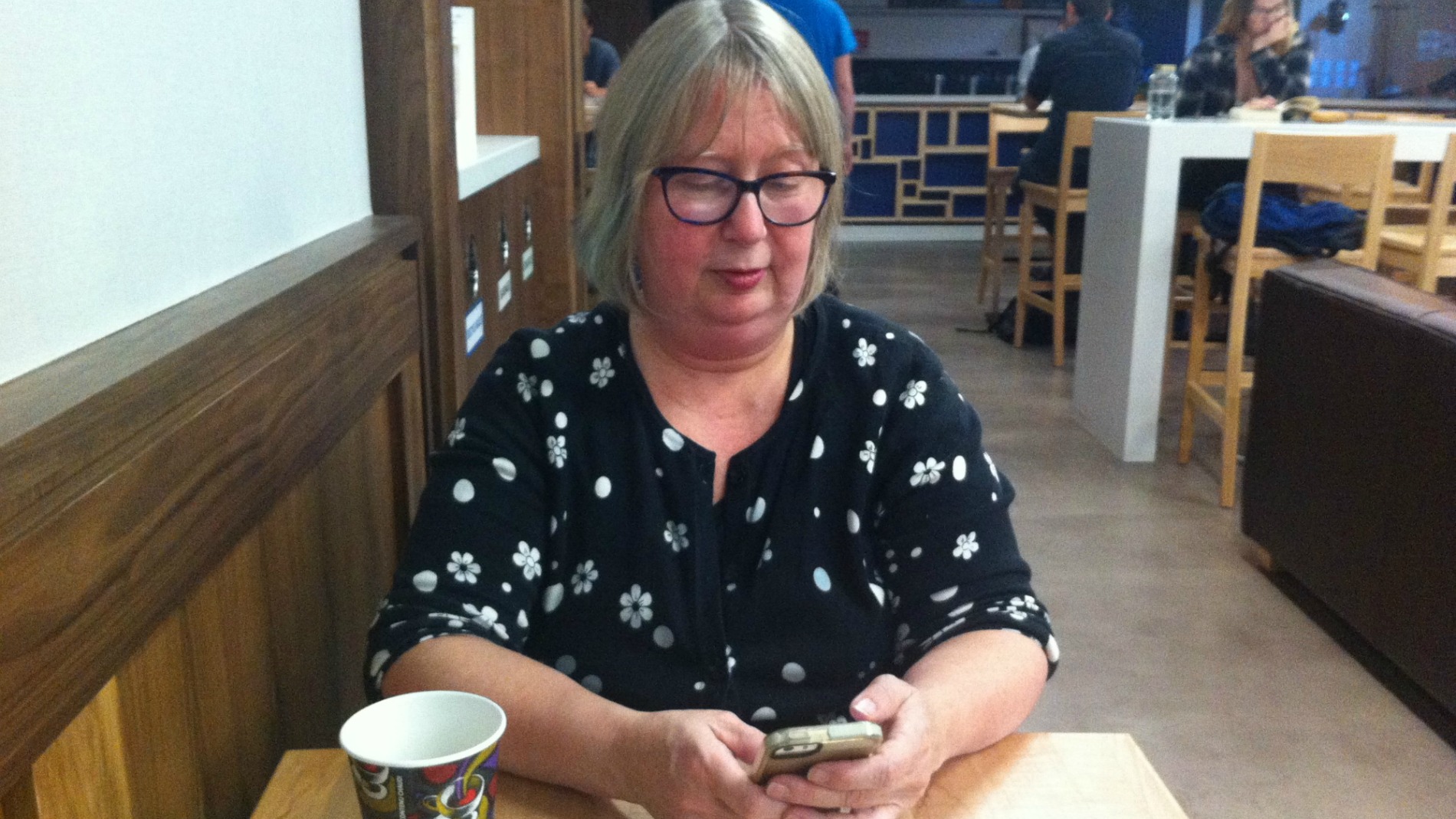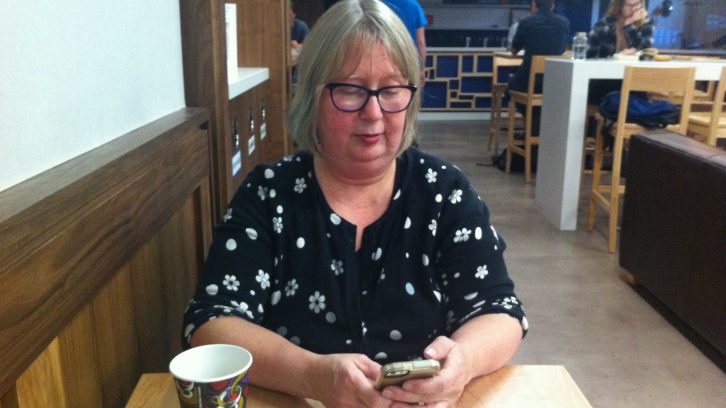Strike
Local Xpress editor feels pride and isolation
As strike continues, Chronicle Herald employees run news site from home

caption
Pam Sword, Local Xpress editor, is never far from her phone to connect with colleagues from her digital newsroom
caption
Pam Sword, Local Xpress editor, is never far from her phone to connect with colleagues from her digital newsroom.Pam Sword, 60, constantly checks her messages on the Slack app. It’s how she communicates with her staff at one of Halifax’s most provocative publications.
Sword is the editor-in-chief of the Local Xpress – the online paper staffed by Chronicle Herald journalists, who have been on strike since January.
Many of the journalists running the site are older with long careers behind them. Related stories
Sword worked for a number of papers across Ontario before ending up at the London Free Press and then the Chronicle Herald.
“Interesting is too boring a word,” she says of her experience with the Xpress. “It’s been challenging, tiring – those are good words. But one word?”
Sword settles on proud.
Part of the reason is that they’re defying a misconception.
“We’re just a bunch of ‘aging print dinosaurs,’” she says tongue-in-cheek of her colleagues, “Who don’t want to change and can’t cope with change.”
Despite this, they are on the vanguard of media operating an all-digital newsroom.
The whole photo department of the Herald works on the Xpress full time along with many familiar Herald editors and writers. Contributors don’t get paid to write for the Xpress, though they do receive pay from the strike fund.
The site covers costs through advertising, taking donations on Patreon and a partnership with Village Media.
Originally, the Xpress had an estimated tenth of the traffic of the Herald though Sword now estimates that has increased to a quarter. Certain articles that have attracted viral attention bridge the gap to about half.
Strike newspapers are rare, but Sword says this is in part because strikes at newspapers are rare.
The primary pressure the Xpress applies to the Herald is the economic pressure of a competing news site, but it’s also a constant reminder of the important role Herald journalists play.
“Hopefully,” Sword says, “We’re flying the flag of quality journalism and reminding people on a daily basis, ‘Hey we’re good at our job and we should be back at the Herald doing this.’”
Journalists tackle shifts six hours at a time during the week and eight hours at a time on weekends. This occurs every day from seven in the morning until around 10 at night.
Without a newsroom at its core, the work can be isolating. Sword says working from home sometimes leaves her with nobody to talk to.
“There’s probably advantages to working at home, but it can get inside your head too.”
If the journalists return to the Herald, the Xpress will be shut down.
Despite doing what they love, morale is an issue.
“Probably the same as maybe the picket line in a way now,” Sword says with resignation.
“Every week it gets harder, but you know the old union expression: One day longer, one day stronger.”

